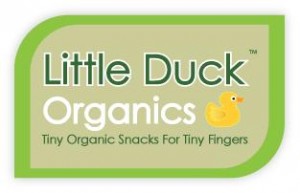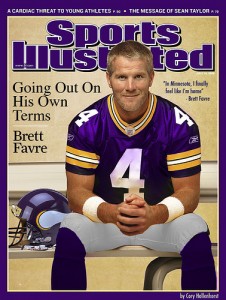Posts Tagged ‘reputation management’
Issues Escalation and Support Guidelines in a start-up environment
Wednesday, February 10th, 2010![images[2] images[2]](https://blog.kikscore.com/wp-content/uploads/2010/02/images2.jpg) You may have noticed a pattern here at KikScore where feedback and the question of when is a product ‘ready’ are hot topics. So, how do you define, measure, and enforce quality in a start up product? Once the product is ‘live’, how can you effectively support your product and react to customer issues and concerns? There are a few key software quality assurance guidelines to follow that apply to products of all shapes and sizes.
You may have noticed a pattern here at KikScore where feedback and the question of when is a product ‘ready’ are hot topics. So, how do you define, measure, and enforce quality in a start up product? Once the product is ‘live’, how can you effectively support your product and react to customer issues and concerns? There are a few key software quality assurance guidelines to follow that apply to products of all shapes and sizes.
During the development phase you must test, test and retest. Depending upon the complexity of the software being developed, this could be a short or lengthy venture. Testing in phases, as pieces of the application become available, is highly recommended. This allows you to not only find major issues early, but also helps ensure you aren’t building upon sub-par code as the product continues through the life-cycle. Also, find a means to track and report status on any and all issues found during the test cycles. A spreadsheet can work if you don’t have a bug tracking system and there are a few free/easy to use ones available.
Even if you had ample time to test everything you could think of, upon release to the general user community, they will find issues you never dreamed of. Once you are ‘live’, your team needs to gauge the severity of any issue that is uncovered or reported to assess the impact and allocate resource(s) accordingly to address it. This is critical in the case where there are limited development resources and you need to prioritize their work so as not to affect other focus growth areas.
Severity can be broken into 3 levels – this also gives the entire team a common terminology when discussing issues.
Severity 1
— Core functionality is not working.
— There is no available work-around to perform the requested action.
— Error messages are displayed.
Severity 2
— Basic functionality is in question.
— There is a work-around to gain access and perform the requested action.
— The system handles the situation gracefully, either with a general ‘logged out’ message or other user-friendly notification.
Severity 3
— General usability items.
— Application is functioning fine, but confusion is raised throughout the display or general system navigation.
Once you’ve qualified the issue, how do you support it through the process and keep the customer informed?
Let’s assume you have a Severity 1 – how do you deal with it? In a small start-up shop, where most of the team has day jobs, creating an on-call or support tier works wonders.
1. Create a weekly on-call support staff that rotates and consists of 2 resources per week.
On a weekly call (or other avenue that applies) — Identify the 2 on-call resources per 1 week interval
2. During the support week, the 2 resources on-call are responsible for researching issues reported and be point of contact for:
— responding to the customer(s) who reported the issue
— involving other team members as needed to escalate/resolve the issue(s)
3. Support resources are required to provide daily updates to the rest of the team on progress of reported issues.
4. Where a code change or update is required, the support resource(s) schedule a team call to outline next steps and expectations
5. If 4 happens, the entire team should discuss the response back to customer(s) on the fix.
The Golden Rule – If a customer found the issue and actively complains – always treat as Severity 1. Be open and honest with your customers surrounding errors that are found and get a fix released in a timely manner. This builds trust in not only your product and support but builds integrity into your brand. What is your quality cycle or lessons learned?




 There are no atheists in a foxhole, but is there brand loyalty in a recession? In our household, the answer is…nope. I’ve been noticing this past year the slow emergence of generic groceries cropping up in our cabinets. Generics? Dear Lord, the last time I was subjected to generic groceries was growing up with my frugal parents. Instead of Fruit Loops, we got those Fruity O’s…you know the similarly colored, fruit-flavored cereal that comes in a bag. Yum. But my wife insists that times have changed and store-label food products are just as good. So instead of Irish Spring, we now use Up And Up (Target’s generic brand of green soap). It’s not bad. Instead of NyQuil, another Target brand (we love Target). Instead of Cinnamon Toast Crunch…we continue to get Cinnamon Toast Crunch (you don’t skimp on the important things). But our household isn’t alone. It appears that in 2009 there was a
There are no atheists in a foxhole, but is there brand loyalty in a recession? In our household, the answer is…nope. I’ve been noticing this past year the slow emergence of generic groceries cropping up in our cabinets. Generics? Dear Lord, the last time I was subjected to generic groceries was growing up with my frugal parents. Instead of Fruit Loops, we got those Fruity O’s…you know the similarly colored, fruit-flavored cereal that comes in a bag. Yum. But my wife insists that times have changed and store-label food products are just as good. So instead of Irish Spring, we now use Up And Up (Target’s generic brand of green soap). It’s not bad. Instead of NyQuil, another Target brand (we love Target). Instead of Cinnamon Toast Crunch…we continue to get Cinnamon Toast Crunch (you don’t skimp on the important things). But our household isn’t alone. It appears that in 2009 there was a  By nature, I’m a contrarian. It could be that I just like to argue, but if the conventional wisdom is one way, I’m inclined to believe the opposite. Since “Blink” and “Tipping Point” became the reference points for almost everyone in the business world, I started to heavily discount any theory or research posited by Malcom Gladwell. The great thing about being a contrarian, you don’t even need to read the work or understand the position that you’re disagreeing with — you just take the opposite side. So, of course, I had a very good handle on Mr. Gladwell’s work without actually reading it. Unfortunately, my intentional ignorance didn’t last long. As a reader of the The New Yorker, I kept coming across articles that I really enjoyed. The problem: these articles were written by Malcom Gladwell. When does this guys sleep? He’s everywhere. I wouldn’t be surprised if shows up on Sesame Street, explaining supply side economics in a child-friendly way.
By nature, I’m a contrarian. It could be that I just like to argue, but if the conventional wisdom is one way, I’m inclined to believe the opposite. Since “Blink” and “Tipping Point” became the reference points for almost everyone in the business world, I started to heavily discount any theory or research posited by Malcom Gladwell. The great thing about being a contrarian, you don’t even need to read the work or understand the position that you’re disagreeing with — you just take the opposite side. So, of course, I had a very good handle on Mr. Gladwell’s work without actually reading it. Unfortunately, my intentional ignorance didn’t last long. As a reader of the The New Yorker, I kept coming across articles that I really enjoyed. The problem: these articles were written by Malcom Gladwell. When does this guys sleep? He’s everywhere. I wouldn’t be surprised if shows up on Sesame Street, explaining supply side economics in a child-friendly way.  Today’s KikScore interview is with Zak Normandin, owner of
Today’s KikScore interview is with Zak Normandin, owner of  When starting a small business, what drives and motivates you? Is it passion for a cause or the imminent proof that there is a vacancy for a certain need? In talking with a variety of small business owners for our KikScore blog, the desires and drive to start their own venture vary as much as the different products and services they offer such as
When starting a small business, what drives and motivates you? Is it passion for a cause or the imminent proof that there is a vacancy for a certain need? In talking with a variety of small business owners for our KikScore blog, the desires and drive to start their own venture vary as much as the different products and services they offer such as 
 Most of us on the KikScore team work day-time jobs. Working on nights and weekends is very reminiscent of grad school — your days are filled up and then you do your homework at night. Not a big deal. We are all thankful for our jobs as well as having a growing side business.
Most of us on the KikScore team work day-time jobs. Working on nights and weekends is very reminiscent of grad school — your days are filled up and then you do your homework at night. Not a big deal. We are all thankful for our jobs as well as having a growing side business.